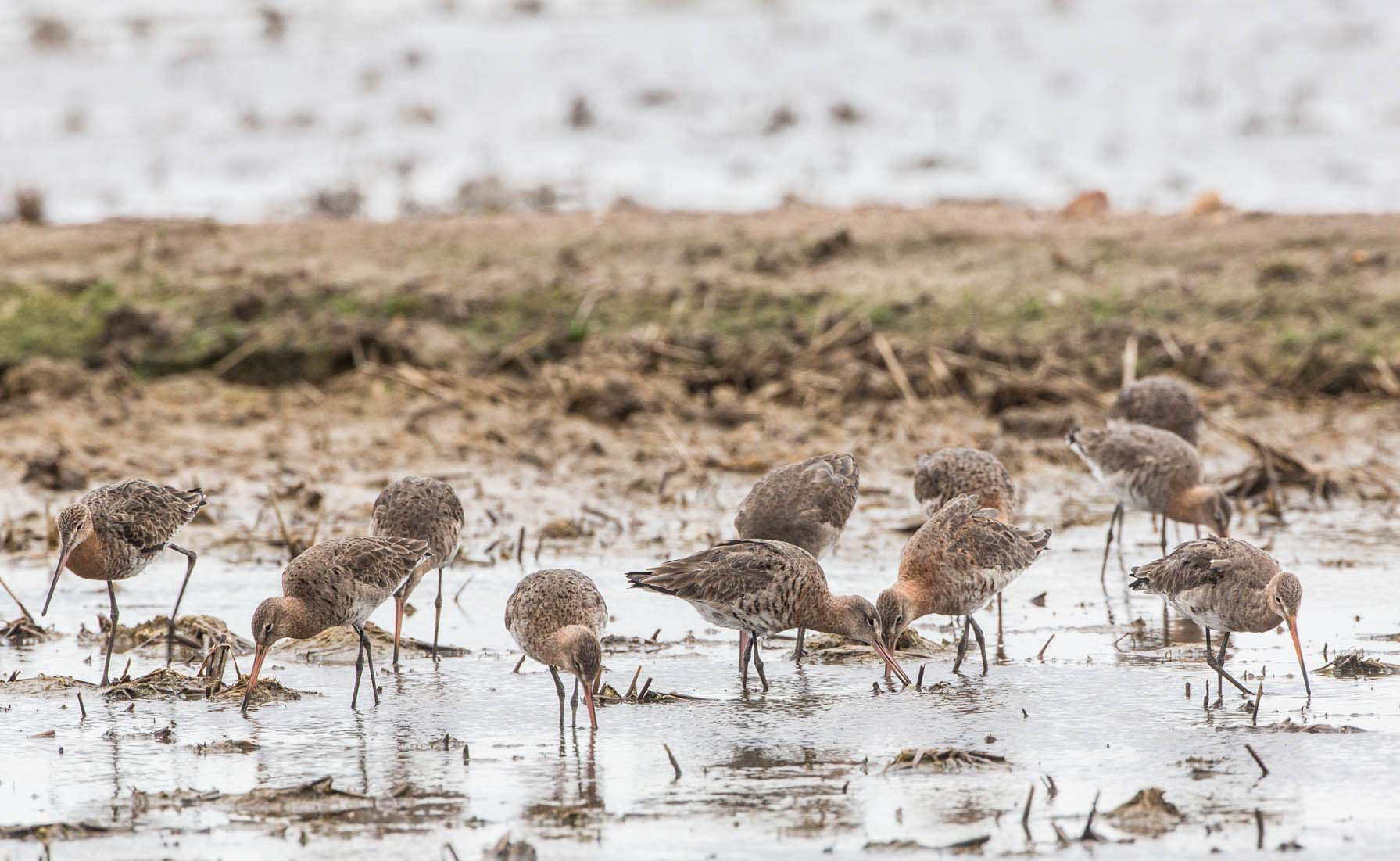When the wind blows from the wrong direction
If you are a black-tailed godwit (Limosa limosa limosa), your biannual migrations over the Sahara desert may prove fatal. Black-tailed godwits that breed in the Netherlands mostly spend their winters in West Africa, and so they fly over the Sahara twice a year. Previous research by the University of Groningen and the University of South Carolina has shown that the north-bound Sahara crossing is much more dangerous than the south-bound one. But why? The answer was published in Ecology Letters this Tuesday.
To answer this intriguing question, the research team from the University of Groningen (UG) used state-of-the-art tracking devices to follow 123 migratory flights of 53 individual black-tailed godwits between 2013 and 2018. The researchers used a newly developed modelling approach to resemble the minimum wind conditions experienced by migrating black-tailed godwits, and showed that godwits experience more assistance from the wind during southward Sahara crossings than when they head northwards. During flights towards West Africa, black-tailed godwits thus seem to benefit from the helpful trade winds in this part of the world.

Unsurprisingly, all birds survived the south-bound crossing – but 24% of the north-bound journeys that were examined went wrong. It turns out that these fatal crossings were associated with adverse wind conditions en route. Seeing as other trans-Saharan migratory bird species exhibit a similar elevated mortality rate during their northward migration, the authors suggest that wind conditions during the Sahara crossing could also be a strong challenge for other trans-Saharan migrants.
200 hours
Perhaps the most surprising question arising from this study is ‘Why did the black-tailed godwits not prepare for the longer flights required for the north-bound crossings, during which they died?’ Other godwit species have been shown to be able to continue flying, without rest, for more than 200 hours. So, why did this species not prepare themselves for the worst, or, indeed, avoid the adverse winds? UG researcher Jelle Loonstra: "To answer this question, we argue that future research should focus on the development of migratory behaviour and decisions, including the decision to begin the migration path."
More news
-
17 February 2026
The long search for new physics
-
10 February 2026
Why only a small number of planets are suitable for life
